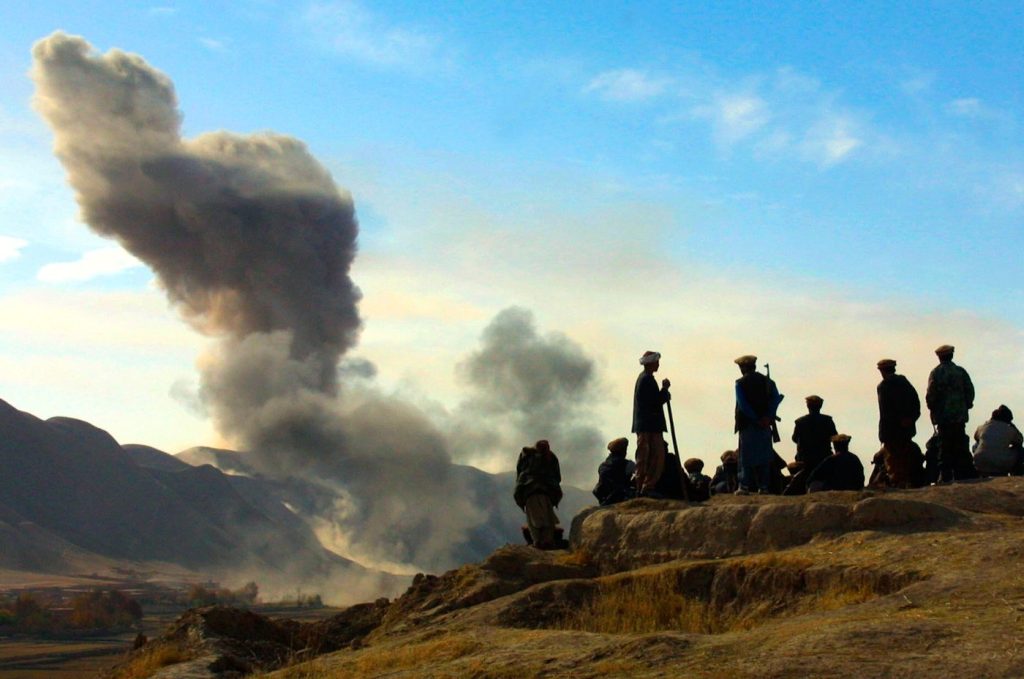Columbus, Ohio (AP) – U.S. veterans of the war in Afghanistan are expressing their challenging experiences to a bipartisan commission that is reviewing decisions made during the two-decade-long conflict. Veterans describe their time in Afghanistan not only as distressing but also confounding, demoralizing, and sometimes humiliating.
The Afghanistan War Commission aims to compile these veterans' accounts in a report due to Congress next year. This report will analyze critical strategic, diplomatic, military, and operational decisions made from June 2001 until the chaotic withdrawal in August 2021. On Tuesday, the commission released its second interim report, which does not yet draw conclusions but identifies emerging themes from thousands of pages of government documents, 160 interviews with various officials and leaders, and discussions with veterans at forums like the recent Veterans of Foreign Wars convention in Columbus.
During an August 12 discussion, veterans shared personal experiences that highlighted their frustrations and disillusionment with the war. Marine veteran Brittany Dymond, who served in Afghanistan in 2012, described her experience as "awful," while Navy veteran Florence Welch expressed shame over her service in light of the 2021 withdrawal, stating it transformed their efforts into a "Vietnam" experience.
The independent commission, created by members of Congress who served in the war, began its review following an assessment by the Democratic administration of President Joe Biden that criticized the actions of former President Donald Trump’s administration for limiting U.S. options. A Republican review faulted Biden in return. The ongoing discord over these events prompted Defense Secretary Pete Hegseth to order an additional review this spring.
Co-Chair Dr. Colin Jackson emphasized the importance of understanding the full scope of the conflict, which spanned four presidential administrations and resulted in over 2,400 American deaths. The commission's focus is on examining not just the conclusion of U.S. engagement in Afghanistan, but also its inception and development.
Co-chair Shamila Chaudhary remarked that the commission is tackling broader questions regarding the United States' actions in any country where it perceives a national security interest. She stressed the importance of values that guide U.S. behavior and engagement with different cultures.
Jackson noted one priority is to ensure the final report, due in August 2026, echoes the experiences of every veteran of the Afghanistan conflict. Dymond raised concerns about the mission, arguing that attempting to impose a democratic agenda on a culture that does not share the same ideology led to inevitable negative outcomes. She pointed out the loss of lives during two decades of military engagement aimed at changing beliefs “that they didn’t ask for.”
Army veteran Steve Orf described the experience as demoralizing, stating that many who served believed they were contributing to global betterment, carrying with them the U.S. ideals of hope and principles. However, he expressed that for many, trust in leadership and their country has been irrevocably broken due to the war's toll.
The Tuesday report highlighted emerging themes, including strategic drift and interagency incoherence, while questioning whether the objectives of the war within Afghanistan aligned with counterterrorism efforts outside the country. It also outlined the challenges the commission faced in obtaining key documents. The Biden administration initially denied requests for materials related to the February 2020 peace agreement with the Taliban and the subsequent handling of the withdrawal, citing executive confidentiality concerns. However, following the commission's persistent urgency, critical intelligence and documents have begun to be released.











